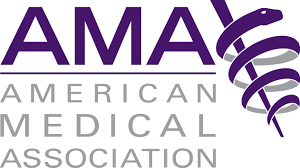 How about this: in Harvard Business Review, two leaders at Johns Hopkins suggested that hospitals could learn something about buying equipment from -- drum roll, please -- the airline industry. You don't often find many people defending airlines these days, much less holding them up as good examples of anything (except, perhaps, about what not to do, what with overbooking, cramped leg space, plenty of add-on fees, and, of course, dragging paying passengers off planes). That their recommendations make sense probably says more, though, about how poorly health care often does things than how well airlines do...
How about this: in Harvard Business Review, two leaders at Johns Hopkins suggested that hospitals could learn something about buying equipment from -- drum roll, please -- the airline industry. You don't often find many people defending airlines these days, much less holding them up as good examples of anything (except, perhaps, about what not to do, what with overbooking, cramped leg space, plenty of add-on fees, and, of course, dragging paying passengers off planes). That their recommendations make sense probably says more, though, about how poorly health care often does things than how well airlines do...
 The Health Information Technology for Economic and Clinical Health (HITECH) Act provided providers with a significant financial incentive to increase the adoption and use of EHRs. EHR vendors were required to conduct and report on a summative usability evaluation of their system as part of the Stage 2 Meaningful Use program (The ONC 2014 Edition Certification). However, a recent report funded by the Agency for Healthcare Research and Quality (AHRQ), identified several “issues” with the certified EHR vendors in the processes, practices and use of standards and best practices with regard to usability and human factors.
The Health Information Technology for Economic and Clinical Health (HITECH) Act provided providers with a significant financial incentive to increase the adoption and use of EHRs. EHR vendors were required to conduct and report on a summative usability evaluation of their system as part of the Stage 2 Meaningful Use program (The ONC 2014 Edition Certification). However, a recent report funded by the Agency for Healthcare Research and Quality (AHRQ), identified several “issues” with the certified EHR vendors in the processes, practices and use of standards and best practices with regard to usability and human factors.
 Better technology is out there serving other industries … and it can be applied in healthcare. Technology should ease administrative loads and put clinicians back in front of patients! I’ve talked about some of this previously and how we keep clinicians involved in our design process. When it came to building an entirely new EHR, the driving force behind our team researching and adopting new technologies was to imagine a clean slate...
Better technology is out there serving other industries … and it can be applied in healthcare. Technology should ease administrative loads and put clinicians back in front of patients! I’ve talked about some of this previously and how we keep clinicians involved in our design process. When it came to building an entirely new EHR, the driving force behind our team researching and adopting new technologies was to imagine a clean slate... As a physician and CIO, I’m quick to spot inefficiencies in healthcare workflow. More importantly, as the care navigator for my family, I have extensive firsthand experience with patient facing processes. My wife’s cancer treatment, my father’s end of life care, and my own recent primary hypertension diagnosis taught me how we can do better. Last week, when my wife received a rejection in coverage letter from Harvard Pilgrim/Caremark, it highlighted the imperative we have to improve care management workflow in the US. Since completing her estrogen positive, progesterone positive, HER2 negative breast cancer treatment in 2012 (chemotherapy, surgery, radiation), she’s been maintained on depot lupron and tamoxifen to suppress estrogen...
As a physician and CIO, I’m quick to spot inefficiencies in healthcare workflow. More importantly, as the care navigator for my family, I have extensive firsthand experience with patient facing processes. My wife’s cancer treatment, my father’s end of life care, and my own recent primary hypertension diagnosis taught me how we can do better. Last week, when my wife received a rejection in coverage letter from Harvard Pilgrim/Caremark, it highlighted the imperative we have to improve care management workflow in the US. Since completing her estrogen positive, progesterone positive, HER2 negative breast cancer treatment in 2012 (chemotherapy, surgery, radiation), she’s been maintained on depot lupron and tamoxifen to suppress estrogen... Physician burnout is an increasingly common issue in healthcare, and there are a lot of factors that can contribute to it. Long hours, paperwork and the burden of administrative tasks all play a part. But electronic medical records can also contribute to burnout, largely because each system is different. With disparate electronic health record systems comes an added hardship for physicians, affecting their work -- and their reimbursement. Compounding the issue is that many physicians are no longer limited to just one facility. Many handle rounds at multiple hospitals and/or practices, and if each has its own EMR system that doesn't necessarily communicate with the others, it can be a growing headache.
Physician burnout is an increasingly common issue in healthcare, and there are a lot of factors that can contribute to it. Long hours, paperwork and the burden of administrative tasks all play a part. But electronic medical records can also contribute to burnout, largely because each system is different. With disparate electronic health record systems comes an added hardship for physicians, affecting their work -- and their reimbursement. Compounding the issue is that many physicians are no longer limited to just one facility. Many handle rounds at multiple hospitals and/or practices, and if each has its own EMR system that doesn't necessarily communicate with the others, it can be a growing headache. Every inpatient and outpatient EHR could theoretically be integrated with a machine learning platform to generate predictions, in order to alert clinicians about important events such as sepsis, pulmonary emboli, etc. This approach may become essential when genetic information is also included in the EHR which would mandate more advanced computation. However, using machine learning and artificial intelligence (AI) in every EHR will be a significant undertaking because not only do subject matter experts and data scientists need to create and validate the models, they must be re-tested over time and tested in a variety of patient populations. Models could change over time and might not work well in every healthcare system. Moreover, the predictive performance must be clinically, and not just statistically significant, otherwise, they will be another source of “alert fatigue.”
Every inpatient and outpatient EHR could theoretically be integrated with a machine learning platform to generate predictions, in order to alert clinicians about important events such as sepsis, pulmonary emboli, etc. This approach may become essential when genetic information is also included in the EHR which would mandate more advanced computation. However, using machine learning and artificial intelligence (AI) in every EHR will be a significant undertaking because not only do subject matter experts and data scientists need to create and validate the models, they must be re-tested over time and tested in a variety of patient populations. Models could change over time and might not work well in every healthcare system. Moreover, the predictive performance must be clinically, and not just statistically significant, otherwise, they will be another source of “alert fatigue.” The Quadruple Aim recognizes that a healthy, energized, engaged, and resilient physician workforce is essential to achieving national health goals of higher quality, more affordable care and better health for the populations we serve. Yet in a recent study of U.S. physicians, more than half reported experiencing at least one symptom of burnout—a substantial increase over previous years—indicating that burnout among physicians is becoming a national health crisis. Leadership is needed to address the root causes of this problem and reposition the health care workforce for the future. The authors of this paper—the CEOs of our respective institutions—are committing to do just that...
The Quadruple Aim recognizes that a healthy, energized, engaged, and resilient physician workforce is essential to achieving national health goals of higher quality, more affordable care and better health for the populations we serve. Yet in a recent study of U.S. physicians, more than half reported experiencing at least one symptom of burnout—a substantial increase over previous years—indicating that burnout among physicians is becoming a national health crisis. Leadership is needed to address the root causes of this problem and reposition the health care workforce for the future. The authors of this paper—the CEOs of our respective institutions—are committing to do just that... Primary care physicians spend more than half of their workday at a computer screen performing data entry and other tasks with electronic medical records (EHRs), according to new research from experts at the University of Wisconsin and the American Medical Association (AMA). Based on data from EHR event logs and confirmed by direct observation data, researchers found that during a typical 11.4-hour workday, primary care physicians spent nearly six hours on data entry and other tasks with EHR systems during and after clinical hours. The study was published today in the Annals of Family Medicine...
Primary care physicians spend more than half of their workday at a computer screen performing data entry and other tasks with electronic medical records (EHRs), according to new research from experts at the University of Wisconsin and the American Medical Association (AMA). Based on data from EHR event logs and confirmed by direct observation data, researchers found that during a typical 11.4-hour workday, primary care physicians spent nearly six hours on data entry and other tasks with EHR systems during and after clinical hours. The study was published today in the Annals of Family Medicine...